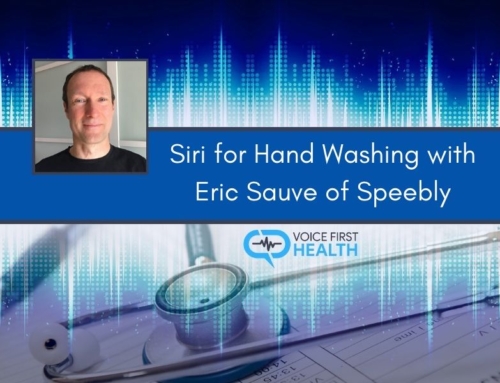VFH Episode 64
In this episode, Teri welcomes Israel Krush, the CEO and Co-Founder at Hyro, a voice platform that allows enterprises to easily add voice capabilities to their websites and mobile apps.
Israel is based in Israel and is a former elite intelligence officer in the Israeli Defense Forces. He studied Computer Science and Statistics, has a background in machine learning. He previously worked as a software engineer for Intel and various startup companies. His company Hyro allows customers to have two-way conversations to simplify their access to relevant information. Starting with healthcare, the software enables organizations to better engage with their existing customers and reduce the cost of customer support.
Key Points from Israel!
- What they’re doing in the voice technology and conversational AI space taking data from various places and serving it up via their AI technology for people to incorporate into their websites, businesses, and other entities.
- The interesting work they’re doing to help with the COVID-19 pandemic.
What Hyro Does
- It’s a plug and play conversational AI platform for healthcare providers.
- The company is focused on both voice and text as long as it’s natural language.
- They target enterprises and organizations that have massive amounts of data that are hard to navigate.
- The most important aspect of their solution is the plug and play.
- While researching the voice assistant and chatbot market, they learned that a lot of the existing solutions are based on a creation platform.
- Hyro gives its users a creation platform where they can define their intents and build their workflows or conversational flows. They discovered that there was a lot of friction in the deployment and maintenance of their platform for users, so they decided to look for a plug and play approach.
- One of the main valuable use cases of their solution for healthcare providers has been helping patients find a physician when they need one. They find a physician based on various attributes of the physician.
- Another use case is in helping patients find the services that a healthcare provider offers.
- The patients and other users can interact through various modes and devices. Most traffic comes from mobile devices through typing (texting).

Helping Battle COVID-19
- When the pandemic started, they gathered in conference rooms in all their locations to discuss how they could help with the situation because they knew that patients would have multiple questions regarding the Coronavirus.
- Based on their technology, they scrapped the certified resources that have answers for questions around COVID-19. They specifically scrapped the WHO and CDC websites, and then constructed a knowledge graph about the virus and released a free chatbot that is also addressing issues around the virus. The chatbot answers frequently asked questions about the virus and give people a risk assessment based on a short dialogue with a user about their age, where they’re based, whether they’ve interacted with a COVID-19 patient, and other things.
Feedback From Users
- Hyro doesn’t offer a one-fits-all solution. Every healthcare provider has its own unique needs, data sources, and how they handle their patients.
- With the COVID-19 solution, some healthcare providers have provided additional resources about the virus-like their own FAQ webpages.
- Healthcare providers saw a need for a conversational solution to help patients in getting relevant information. They, therefore, felt Hyro’s solutions made sense.
The Rise of Telemedicine
- People are adopting telemedicine more and more because it has become clear that the old way of healthcare is gone and patients are more willing to use telemedicine.
- They see the same adoption in the conversational aspect of their solution. Patients are constantly asking how they can schedule a virtual appointment.








